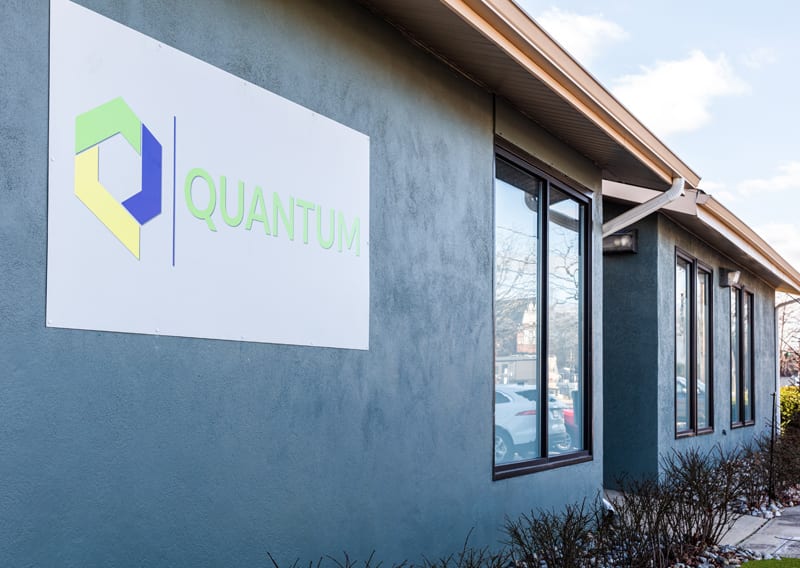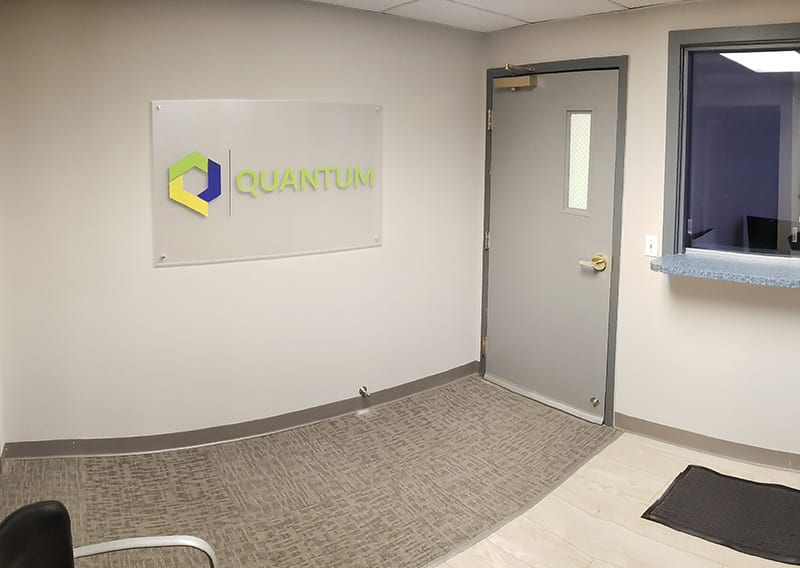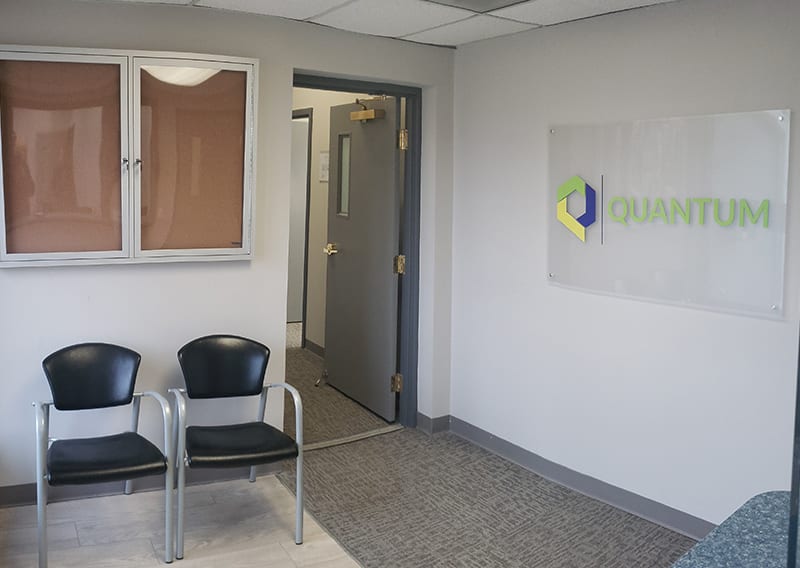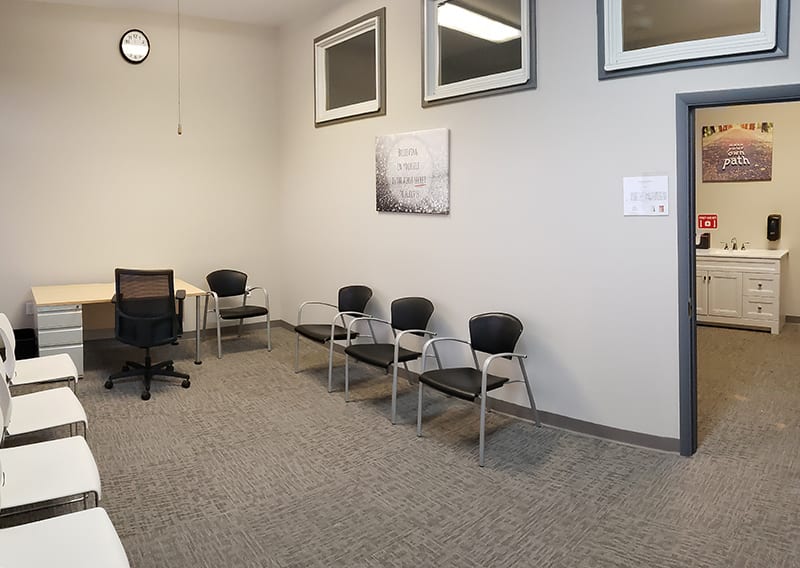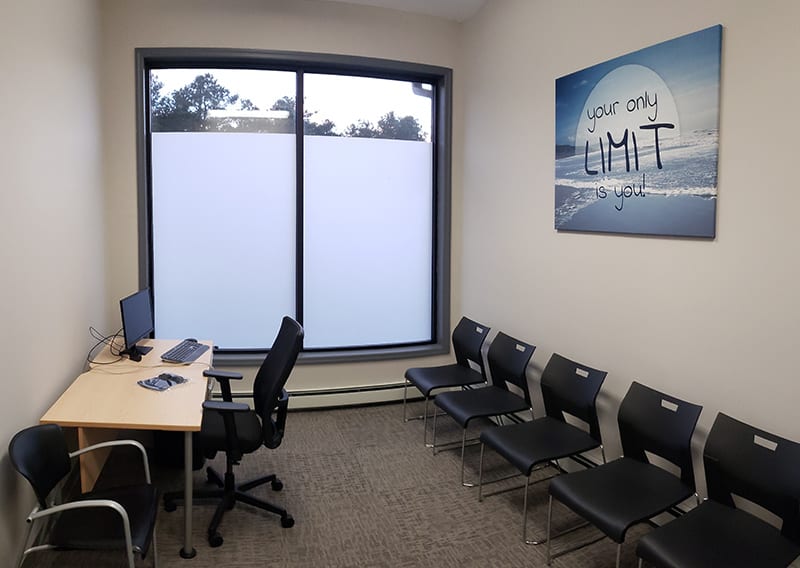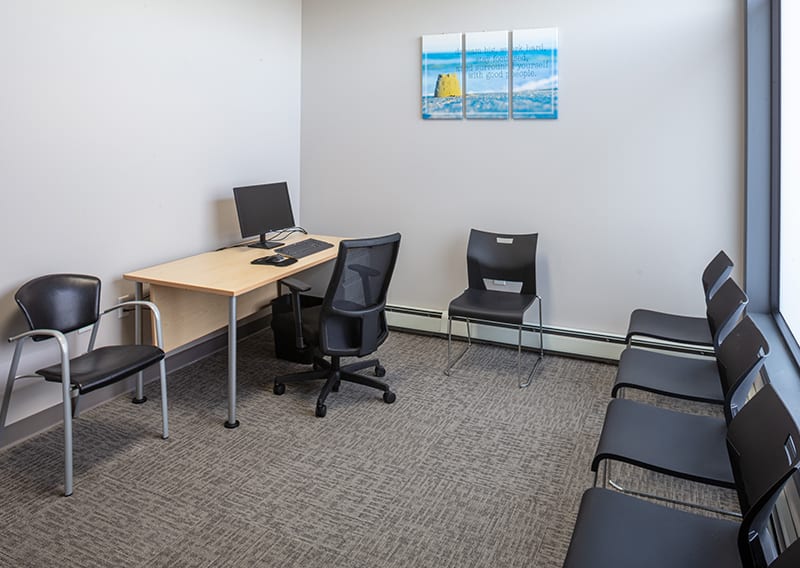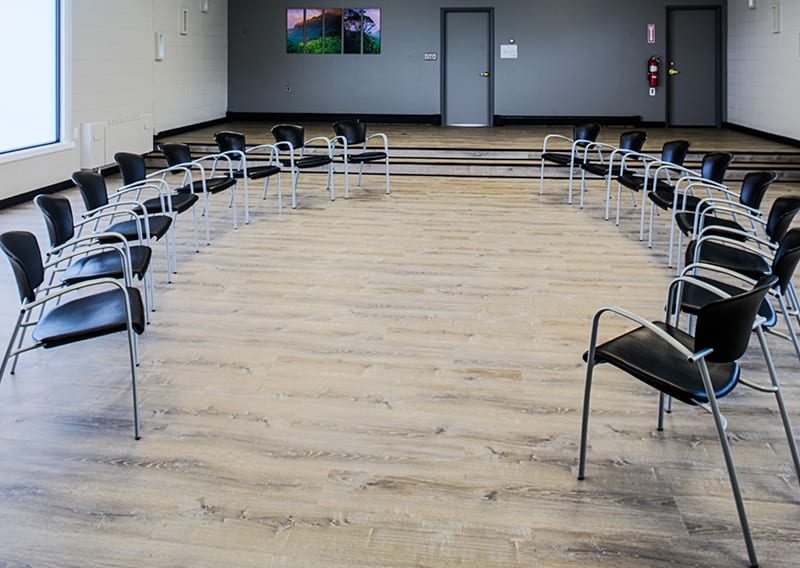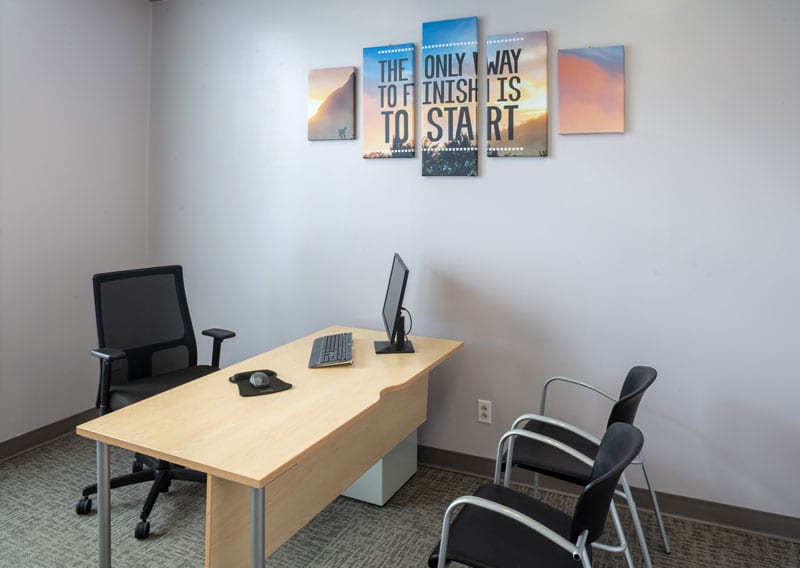Our facility is a warm, inviting, cozy, and secure environment that provides the perfect level of safety, comfort, and privacy as you receive treatment and get on your path to wellness. We’ve designed our space to allow for a low-stress environment where you can focus on your well-being.
Given the concerns of the COVID pandemic, we’re ensuring procedures are followed to create a clean environment for our patients, staff, and visitors. We’ve gone above and beyond CDC and New Jersey State guidance to design our cleaning and disinfecting protocol so that there is no question of the cleanliness and safety of our facility.
You’re here to get well and our priority is maintaining a safe, clean, peaceful, and welcoming environment for you to do just that.
To see our response to Covid-19, click here.
Photo Gallery
Click photos to enlarge
Are You Ready to Begin Your Journey to Recovery?
You could be completely covered. Verify Your Insurance Today.
The Quantum
Process Outpatient Rehab NJ
1. Make the Call
Contact our Quantum Team at
(609) 993 – 0733 to get started.
2. Complete
Your Intake
This streamlined process includes a series of questions and discussion of your unique needs and goals.
3. Get the Best Care Team Possible
After your intake, you’ll meet your Care Team, a group of amazing professionals dedicated to helping you make recovery reality.
4. On-Going Support
After you meet your Care Team, you’ll start to receive treatment based on a Care Plan that’s designed to help you achieve and sustain your recovery.
What is Klonopin?
Klonopin (brand name Clonazepam) is a prescription benzodiazepine used to treat panic attacks, sleep issues, anxiety disorders, and seizures. Clonazepam works on calming the central nervous system and is also used to treat alcohol withdrawal. Like other benzodiazepines, Klonopin has a high abuse potential for benzo addiction. Dependency and addiction to Klonopin can develop within a few weeks, even when used as directed by a healthcare professional. Klonopin is used as an oral pill or tablet that is taken at a regular time each day or on an as-needed basis.
Klonopin Effects
Clonazepam Klonopin works by altering electrical activity between brain cells. Effects of Klonopin include calming anxiety and feelings of fright. However, like many other prescription medications, it also comes with some adverse effects. Side effects of Klonopin include:
- Headaches
- Drowsiness
- Accidental falls
- Slurred speech
- Unusual heartbeat
- Insomnia
- Birth defects
- Seizures
- Weak or shallow breathing
- Confusion
- Hallucinations
- Blurred vision
- Painful or difficult urination
- Suicidal thoughts
Signs of Klonopin Abuse and Addiction
Clonazepam Klonopin addiction develops when the user builds up a tolerance to the medication and needs more to get the same effect. Addiction affects all areas of someone’s life and over time the signs of addiction are quite clear. Signs of Klonopin addiction and substance abuse include:
- Persistent cravings
- Desire to quit using Klonopin but unable to do so
- Withdrawal symptoms when attempting to stop taking Clonazepam
- Continued use despite negative effects on personal life, health, and professional life
- Loss of interest in activities once enjoyed
- Developing legal or financial issues
- Unable to keep up with social, personal, or professional obligations
- Decline in appearance or hygiene
- Klonopin Withdrawal Symptoms
- Stop taking
Klonopin WIthdrawal Symptoms
Klonopin addiction and dependence can develop within a few weeks of starting a course of medication. Klonopin works by blocking receptors in the brain to reduce anxiety and stress, however, the brain can become dependent on these mechanisms and can no longer function without the medication. When a person stops taking Clonazepam, they develop withdrawal symptoms similar to alcohol withdrawal, including:
- Rebound anxiety
- Panic attacks
- Restlessness
- Muscle spasms
- Flu-like feelings
- Headaches
- Sweating
- Hyperventilation
- Insomnia
- Extreme light sensitivity
- Irritability and agitation
- Strange bodily sensations
- Delusions, delirium, and hallucinations
- Grand mal seizures
Klonopin withdrawal can be highly dangerous and you should never stop taking Clonazepam abruptly. Medically assisted detox at a treatment center may be necessary to safely begin benzo addiction recovery.
Long-Term Side Effects of Klonopin Abuse
Clonazepam Klonopin addiction can have several negative effects on a person’s mental and physical health. Long-term side effects of Klonopin include:
- Memory loss
- Poor concentration
- Mental confusion
- Increased risk of overdose
- Weakness
- Vertigo
- Cognitive problems
- Hostility
- Antisocial behavior
- Depression
- Anxiety
- Insomnia
Klonopin Addiction Treatment
Addiction to Klonopin can easily happen to anyone, even when used as prescribed. Medication-assisted treatment may be necessary for Klonopin withdrawal because of severe and dangerous withdrawal symptoms. Addiction treatment programs can lead to successful substance use disorder recovery through evidence-based addiction therapy. Drug rehab can offer several levels of care to fit any type of drug addiction and severity. Inpatient treatment programs may be necessary for severe or prolonged drug addiction, which allow you to fully immerse yourself into your treatment and rehab program. Residential treatment can also eliminate influences and temptations outside the recovery center. Once you have completed inpatient rehab, the continuum of care will be to transfer into an outpatient program. Outpatient rehab includes a partial hospitalization program (PHP), intensive outpatient program (IOP), and virtual outpatient rehab. An outpatient program allows you to receive addiction treatment while continuing to go to school or work and actively apply what you learn in drug rehab to everyday life.
Each type of rehab program offers many of the same forms of addiction treatment. Often, those with benzodiazepine addictions have co-occurring disorders such as panic disorder, anxiety, depression, eating disorders, and PTSD which must be treated simultaneously with drug rehab. Prescription drug addiction treatment should include dual diagnosis programs to treat underlying mental illness disorders. Treatment programs can include the following substance abuse therapies:
- Drugs Detox
- Cognitive Behavioral therapy
- Dialectical behavior therapy
- Individual therapy
- Group therapy
- 12-Step Programming
- Family Therapy
- Biofeedback
- Sober living
- Holistic therapies
If you have questions about treatment and addiction therapy, Quantum Behavioral Health Services is available to answer your questions about rehab and addiction therapy programs.
